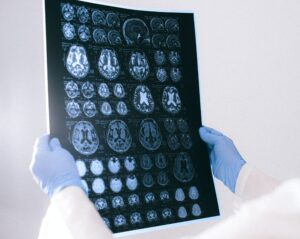Even with the momentous victory of reversing Roe, America is experiencing an acceleration of the devaluing of human life.
As a result, there is an increased potential your family may be affected.
 Proponents of assisted suicide made grandiose promises that safeguards written into their legislation would protect the innocent and securely limit those who opt for legal death by drugs.
Proponents of assisted suicide made grandiose promises that safeguards written into their legislation would protect the innocent and securely limit those who opt for legal death by drugs.
The safeguards are dropping like flies.
Both Vermont and Oregon have shelved the requirement that those who receive assistance to die by suicide must be residents of the states. This has created state-sanctioned “suicide tourism.”
Vermont further permits telemedicine for assisted suicide. This means that nonresidents can receive lethal drugs without ever seeing a physician in person. By its action, Vermont violates most state laws that prohibit assisted suicide. If unchallenged, it could have single-handedly legalized assisted suicide throughout America.
If your family member is experiencing depression or some other mental or physical crisis, it may be possible for them to secure lethal drugs from Vermont to end their lives.
The states of Hawaii and Washington further eroded so-called safeguards by expanding those who can prescribe lethal medication. Physician assistants and advanced nurse practitioners are now able to write prescriptions. This is likely in response to the dearth of physicians willing to help kill their patients.
Hawaii and Washington also significantly reduced the reflective waiting time between patients requesting the lethal drugs and receiving them.
Currently 10 states, plus the District of Columbia, have legalized assisted suicide.
 Changing the Definition of Death
Changing the Definition of Death
There’s a general consensus that the Uniform Determination of Death Act (UDDA), the medical process of determining whether your loved one is brain dead, is inadequate and needs revision. The existing definition is rife with subjective determinations and includes a test that puts patients at risk while providing no benefit to them.
Not all change is good. Some recommendations to revise UDDA would only make a flawed system inherently worse.
The current guidelines include:
- Irreversible cessation of circulatory and respiratory functions.
- Loss of all function of the entire brain, including the brainstem, that can be demonstrated by an irreversible coma, lack of brainstem reflexes, and apnea which is the cessation of breathing.
What is notably missing from the current guidelines is an examination of the hypothalamus that controls involuntary functions of your organs or manages hormones, temperature, and blood pressure.
Tests to confirm apnea are of no benefit to the patient and may actually precipitate brain death. Still with this risk there is no requirement for informed consent by surrogate decision makers.
Even the American Academy of Neurology admits multiple determinations of the UDDA have significant limitations.
There is insufficient evidence to determine the minimally acceptable observation period to ensure that neurologic functions have ceased irreversibly. … there is insufficient evidence to determine the comparative safety of techniques used for apnea testing. There is insufficient evidence to determine if newer ancillary tests accurately confirm the cessation of function of the entire brain.
 The proposed changes that are getting the most attention was published by Ariane Lewis, Richard J. Bonnie, and Thaddeus Pope. If adopted, it would become the legally mandated “medical standard” to determine brain death.
The proposed changes that are getting the most attention was published by Ariane Lewis, Richard J. Bonnie, and Thaddeus Pope. If adopted, it would become the legally mandated “medical standard” to determine brain death.
It would exclude testing for hypothalamic function. Further, it would allow testing – including apnea tests – without consent. Families would be powerless to stop these medical evaluations and a determination of brain death would likely end medical treatment for the patient. This would give hospitals legal authority to make life or death decisions regarding your loved one without your permission.
Such changes are open to accusations that medical professionals are keen to facilitate increased organ donation at the expense of human lives. Organ donation generates significant billing opportunities for hospitals and physicians.
Patient and family rights hang in the balance. If the wrong definition is accepted by the medical community, it will be a further erosion of avenues to protect human life.
Defending life,
Leave a Reply